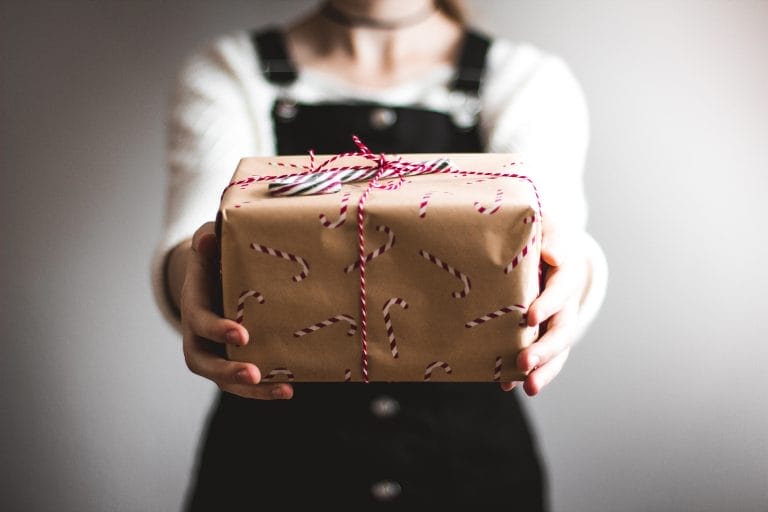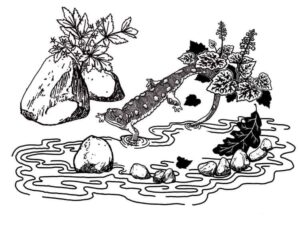The holidays have become a time for giving things. As we near the end of December, last minute gift ideas are often on our minds. “Who have I not thought of yet? Should I get them something? What would they like?” and so on.
I would like to pause and think about what I am trying to accomplish by gifting at all. Is it that I’m afraid of being rude or inconsiderate? Rather, am I feeling inspired to share my good fortune with those that could use a little? Do I feel pressured to buy things for people even though they have everything they want? Who is doing the pressuring?
What am I really trying to say by giving a gift? How do I want this person to feel? Is there another way I can get this message across in a way that is just as or perhaps more effective than buying something?
On occasion, I’ve gotten a really thoughtful, really personalized, super useful gift. Mostly though, my favorite part about the holiday season is that family and friends take time to simply be together.
Confessions of an Unappreciative Little Girl
Disclaimer: I have baggage from gift-giving at the holidays when I was young. I mean emotional and moral baggage (the rest I ditched long ago). I have attempted to temper this and celebrate the good things, but my inner grinch may peek through.
In a world where most of us have what we need and a lot of what we want, yet a culture that celebrates giving things anyway, things can get awkward.
I was raised in a family that celebrated Christmas. When I was a child, what Christmas actually meant was that I had to spend several days with distant relatives who I honestly didn’t know, most of whom I really didn’t want to be spending time with at all, and who definitely didn’t know me. This was confirmed each year by the type of gifts I would typically receive.
First, you need a momentary snapshot into my character as a child. To my infinite gratitude, I spent most of my time in a book or in the woods. I was the kind of kid that took so much pride in all my time exploring barefoot that when I did occasionally bathe, I took extra care to never wash my ankles and feet just to show off how dirty they were. It was as if they were saying to the world, “I go places,” or, “me and woods are best buds.”
At Christmas, of course, I would bathe well and wish I was excited about swapping presents. The example that comes to mind most strongly of a bad gift (bad for me) was cosmetics. Imagine little me unwrapping a kit full of lotions and other cosmetic products oozing with glitter and perfumes that made me want to squint, cough and choke. These were not the medicinal, expensive, good-for-you kits. These were the cheap ones, made to look as though they were nice, which were simply toxic, I’m sure. When I received a gift like this, I understood two things. First, this relative – let’s call her my distant great-aunt-in-law – did not know me at all. Second, if this was their best guess at what I would like, “normal” girls my age must be very strange indeed. Perhaps they were trying to “normalize” me, which again meant that they didn’t know me at all.
As I grew older I later realized that “normal” girls didn’t necessarily want these things either, at least not all of them. Rather, this distant great-aunt-in-law was really just trying to tell me that she loved me, that she had thought of me, and taken the time and the money to do this thing. This was expected of her.
It was expected of me to receive these…these holiday tokens of love and/or acknowledgement with good manners. Despite what you might think of my parental figures, given their tolerance for my inadequate bathing procedures, they did teach me manners. I would ignore the urge to show my disappointment (as I grew older the expectations just went away) and the urge to flee the situation. I would pretend to be very pleased, give the gift itself compliments, explain how I was going to enjoy it, and very carefully add it to my stack of items to be hidden in a corner somewhere when I get home, which would hopefully be forgotten until April or so when I thought I could politely donate or discard them.
I don’t mean to say that all my presents were bad or that I received a ridiculous amount of the bad ones. What I do mean to say is that this is what I remember of Christmas when I was younger. I remember the anxiety leading up to it, preparing myself for a day of lying and pretending like I enjoyed the yearly ritual. I remember the unending disappointment with how much time, money and packaging were wasted during the whole thing.
I share this little story not because it’s a unique one, but rather because I believe it’s common. I think this happens to some extent to everyone who participates in gift giving at the holidays. We don’t share these stories because it’s more polite to pretend they never happened.
The Holidays Are What We Make Them
As I’ve grown older, I’ve come to understand that Christmas is now not only promoted by, but almost completely orchestrated by business. It’s business that is setting the expectation that people buy each other things for Christmas. If we actually needed something, we should be able to ask for help and be able to receive it. That’s where our time, money and packaging should be going: to good causes…to people who need help.
Justina Prenatt wrote an excellent article on Reclaiming Gifting last year that superbly explores thoughtful gift giving ideas for those seeking an alternative.
One of my favorite alternatives is making donations to a worthy cause. I’ve encouraged my family to make donations in my name, which fulfills both of our needs for warm fuzzy feelings.
If donating for the holidays interests you, Firefly Gathering is in the process of becoming a not-for-profit 501(c)(3), and could use help with the legal fees required to make it happen. If you feel so inclined, you can make your donation here.
Blessings to you for reading this and for caring to make your family’s holiday better for everyone. We may not need to give useless gifts for the holidays, but we do need to be thinking about our future as a people. Our changing climate is a serious reality that will continue to shape the way we live and love one another for many generations. Let’s reconsider how to say “I love you,” so that our grandchildren’s grandchildren have the chance to say it, too.





